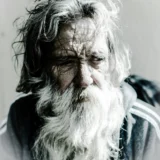
Sir Arthur Conan Doyle had a reputation for having a ‘scientific’ mind. He was in fact a medical doctor, and as the author of the Sherlock Holmes series, developed a reputation for solving crimes—enough so that citizens, and police alike, routinely contacted him, to help solves cases. Despite being a ‘detective’ in his own right, what is not readily known about him is his die-hard belief in fairies and channeled spirits.
It all started around 1917, when two children in Cottingley England took some photos, claiming they were real fairies. Needing an expert, Doyle was called in to investigate. After perusing the evidence and interviewing the children, Holmes—sorry, Doyle—declared the photos authentic. [Even before the digital age, anyone taking a peek at the Cottingley fairy photos would have a good chuckle to think anyone believed that they were real.] Even after three different professional opinions further asserted they were faked, Doyle continued to maintain that they were the real thing—fairies were alive and well in England.
But Doyle’s interest and belief in the occult didn’t stop there.
In 1920, when mystery writer, Agatha Christie, disappeared, Doyle was called in. But rather than use the tried and true method of searching for clues, he deferred to psychic means—a medium. Doyle is often credited as being one of the first to consider using mediums as a method of crime solving, something considered highly questionable in the 1920s. In the end, he helped located Agatha, who, like most writers, was simply being reclusive.
Later in life, when his second wife, Jean, began to channel spirits, Doyle took a special interest. One channel in particular, Pheneas, became Doyle’s direct link—or rather the proof he needed of the spirit world. He began to take notes of the sessions, receiving daily bits of advice, that he often acted on; he even took a trip to America, because the channeled spirit said so.
When Pheneas made the startling declaration that the end of the world was coming, Doyle—the same person who penned fifty-six short stories and four novels featuring one of the world’s best detectives—took it to heart. He believed all of the doom-and-gloom predictions that came from the spirit, which included war, famine, pestilence, environmental disasters and more.
Excited and seeing the urgency of the work, Doyle compiled all of Pheneas’ words and predictions into a manuscript, and tried to get a publisher for it. No one was interested—but that didn’t stop Doyle. He started his own publishing press and even opened a bookstore called, The Psychic Bookshop, to sell the work.
It goes without saying that the end never came.
One other little known fact about Doyle is that his late father was schizophrenic and died under harrowing conditions in a mental ward. Might Doyle have inherited his father’s illness? We might conclude that because Doyle was famous, not to mention held a medical degree, and most importantly, was so entwined with the persona of Sherlock Holmes, enough so that in the public’s mind, Doyle was Holmes, it just might’ve been overlooked.
We’ll never known why Doyle was so insistent to believe in fairies or spirits—perhaps some part of him wanted to use his investigator skills to prove what some of us believe on faith alone.
What do you think—do you believe in ghosts, spirits, and fairies? Weigh in, below, in the comments.










Recent Comments